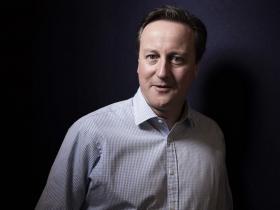One of my all-time favourite anthems is A R Rahman’s stirring tribute to his motherland — India. Each time I hear his voice soar as he sings ‘Maa tujhe salaam…Vande Mataram’, I get goosebumps and a lump in my throat. I had the same intensely emotional response earlier this week when I watched Amitabh Bachchan fervently singing ‘Jana Gana Mana’ at the start of the India-Pakistan cricket match in Eden Garden.(Editor's comment - I think the singing of the national anthem at entertainment events should be banned!) Feeling the way I did, I figured I was experiencing genuine love for my beloved country. As definitions and tests of patriotism go, I had certainly passed mine… in my own eyes, of course. If I’d felt deeply moved, if I had moist eyes, if I was getting mushy and sentimental, clearly something wonderful was happening within. I didn’t have to deconstruct it… I felt it. That was good enough. Gut feelings say it all. If you tune in to the many nationalistic songs your heart remembers, you will instinctively recognize the extraordinary frisson they generate — some would call it patriotic fervour. This is the only truth you need to identify. Why should anyone be asked to produce arbitrary ‘proof’ of patriotism?
It’s such a pity that random netas are subjecting citizens to these ‘tests’ and questioning their commitment to the country. If such a test does exist, why not make it public and let people decide whether or not to appear for it? Pass or fail — please identify the examiners. Who appoints them? Is there a panel of experts drawing up exam papers? May we ask for the listed criteria? Will raising flag poles on top of each school, college, government building, convert Indians into overnight patriots? Assuming that does indeed happen, will there be a jury that has the final vote on the subject? Who frames the ultimate laws of patriotism and what will these be? Singing the national anthem twice a day? Shouting slogans in public places every week? Placing the right hand over the heart each time the flag is spotted? Wearing the tricolour on the sleeve? Organizing workshops on proper patriotic behaviour? Perhaps, designing appropriate uniforms which will have to be sported by one and all on national days and important holidays. There is safety in conformity, say those who conform!

ROUSING RAHMAN: If a nationalistic song gives you goosebumps, then you must love your country
That was the upside. Now, let’s look at the downside: What happens to those who refuse to adhere to the rule book and choose to demonstrate their love for the country in their own singular way? Will that be ‘allowed’ by authorities and their designated troops? Is a special cell going to be (officially) created to keep an eye on the un-patriots, pseudo-patriots, self-confessed ‘traitors’, suspected deshdrohis? How will their crimes be identified, tabulated, judged and punished? Special courts? Judges with extra powers? Along with a few kangaroos jumping around inside court premises, just in case the judge misses a key point during the trial?
Why are we doing this? Are we not confident enough of our identity as Indians? And who are these hyper-patriots trying to browbeat citizens into complying with new-fangled ‘India Loyalty Programmes’? The ugly truth is several netas strutting their patriotic plumes and baying for the blood of those not joining the chorus, have criminal records and serious charges pending in courts. Do lusty cries of ‘Bharat Mata ki jai’ absolve them of all the muck? If for any reason, rational or irrational, someone does not raise a politically approved slogan, does it suddenly debilitate the state? Does India totter because a few citizens refuse to mouth salutations on demand? Let’s get a few things clear: hoisting flags, singing anthems, shouting slogans do not make a nation great. Progress does.
Patriotism is pretty hard to define. It is nuanced and complex. It is about loyalty to one’s country, above all else. Which is why it is dangerous and juvenile to label anybody a ‘deshdrohi’ for not participating in political posturing. Anybody can chant ‘Bharat Mata ki jai’ mechanically, and not feel a thing about the country. A hardcore traitor could shamelessly chant ‘Bharat Mata ki jai’ and win applause. Words like mata and pita are invested with a great deal of emotional weight. Which country earns the right to be defined as a mata or pita? The country that wins the hearts and trust of its citizens and inspires them to invest the same level of love, respect and reverence towards it. These feelings cannot be artificially manufactured. A nation that generates these emotions organically, devoid of manipulation and pressure, automatically creates generations of proud patriots. India has always been such a country. We really don’t need minders and monitors to tell us how to be patriotic. Do us all a favour, you bullies — just vamoose, will you?

